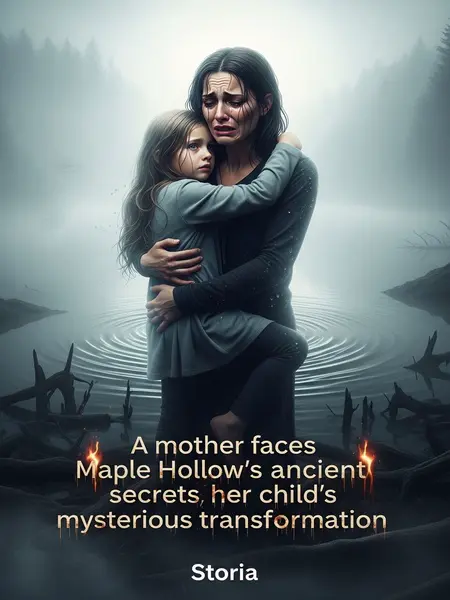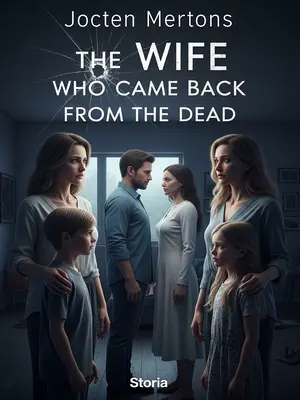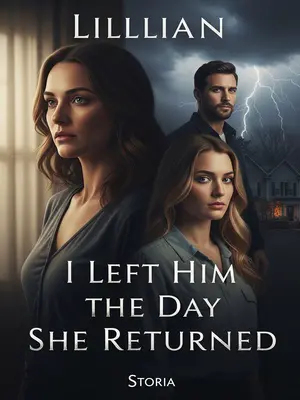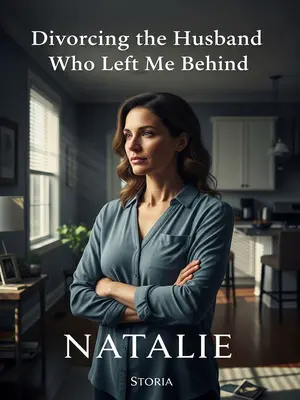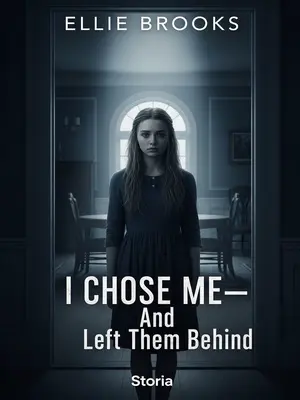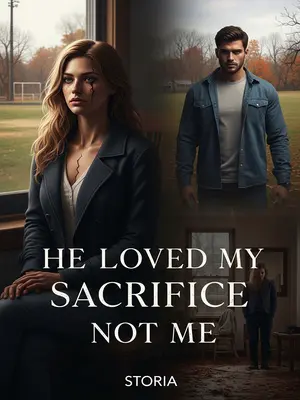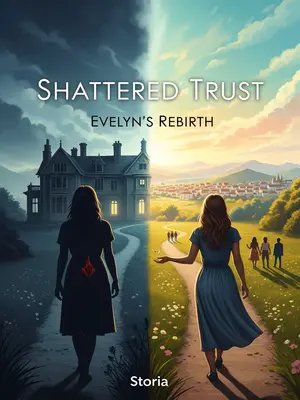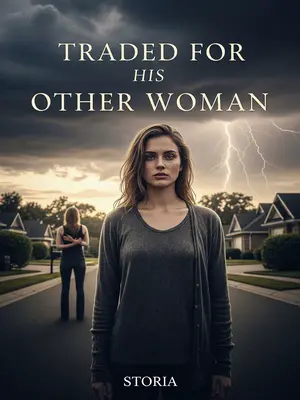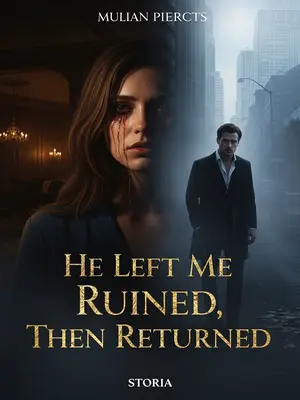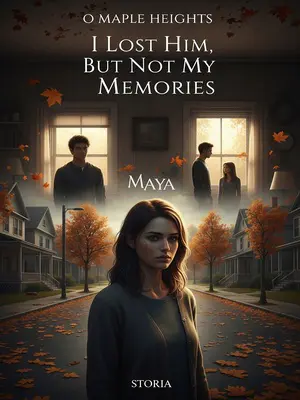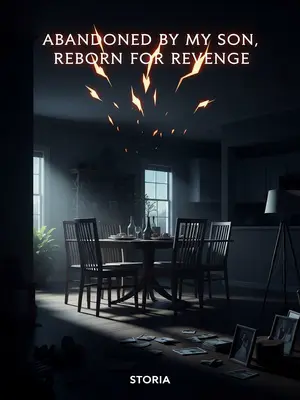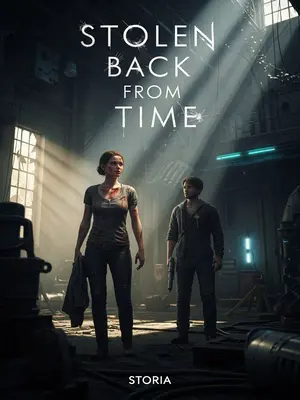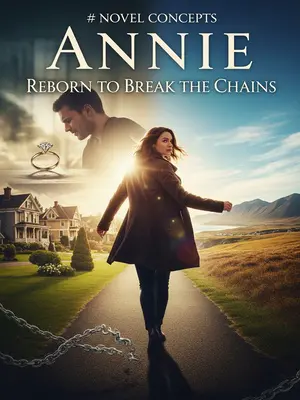Chapter 5: Secrets of the Lake God Chapel
The man was short, with delicate features, smiling; the woman was tall, with sharp eyes, a bit arrogant in her gaze. Their smiles didn’t reach their eyes. There was something haunted about them, something that set them apart from the rest.
Grandma Elsie pointed at the photo in my hand. "Outsiders. Since I was born, only those two outsiders ever came to town." Her voice was heavy with meaning. Outsiders weren’t welcome in Maple Hollow, not then, not now.
Below the photo were their names: Samuel and Helena Rivers. The names were written in faded ink, barely legible. I tried to remember if I’d ever heard them before, but came up empty.
I had never heard of this, so I asked curiously, "How did they come to our town?" I turned to Grandma Elsie, searching her face for answers.
Grandma Elsie recalled: She closed her eyes, lost in memory. "They came for the fish business. Their family was rich, well-connected. But they didn’t believe in the Lake God. That caused a lot of trouble."
"I was young then. I vaguely remember their family also did fish business. They once said something outrageous: the Lake God doesn’t exist. That caused quite a stir." Her voice was tinged with regret. "People didn’t take kindly to outsiders questioning our ways."
On the table were a few sheets of paper and a broken pen. I picked them up, squinting at the faded writing. Most of it was numbers—records of fish sales, shipments, payments.
Most of the writing was illegible, only numbers could be made out, like records of fish and money. The numbers were large, more than I’d ever seen in one place. It was clear the Old Keeper controlled everything.
Grandma Elsie said: "He fooled everyone, made them believe in the Lake God, but it was all a lie. He kept the money, the fish, the power."
"Looks like the Old Keeper really was faking it back then. He fooled folks with the Lake God Chapel, but actually ran everything himself. Back then, folks would pick a time each year to offer sacrifices to the god in bulk. Now it seems it all went into the Old Keeper’s belly." Her words were bitter, full of old wounds. I wondered how many people had suffered because of his lies.
I was about to speak when my sister interrupted, "Tell a lie enough times and people believe it—especially tales of gods and ghosts." Her voice was sharp, cutting through the silence. I glanced at her, surprised by the anger in her eyes.
The atmosphere grew awkward. I changed the subject. "What about those two outsiders?" I tried to steer the conversation back, desperate for answers.
Grandma Elsie shook her head. "I remember they offended the Lake God, the folks wanted to kill them, but the Old Keeper stopped them. Later I got very sick. When I woke up, the Old Keeper was dead, the outsiders were gone, and after that, the men started going out to work."
She added, "Your father was among the first to leave." Her voice was soft, almost apologetic. I felt a pang of grief for all the fathers who never came home.
We searched around but found nothing else useful. I clapped my hands, meaning to wipe off the dust, but realized my hands were clean. The realization hit me—someone had been here recently, someone who didn’t want to be found.
That meant someone had cleaned here recently. A chill ran down my spine. I wondered who it could have been, and what they were hiding.
"We can’t stay here long." Grandma Elsie’s voice was urgent. We gathered our things and hurried back up the stairs, the darkness pressing in around us.
My sister, holding the fish child, left the passage first; we followed. She led the way, flashlight beam steady. The fish child whimpered, but she hushed him with a gentle touch.
The sky was yellowish red, a sign of heavy rain. Thunder rumbled in the distance, the air thick with electricity. We picked up our pace, eager to get back to the open air.
Just as we didn’t know where to go, I saw the black shadow again, this time hiding behind bushes, blending with the water’s reflection. It moved faster than before, darting between the trees. My heart leapt into my throat.
It moved very fast. Ignoring the danger, I chased after it, calling, "Shadow!" My voice echoed through the woods. The others shouted for me to stop, but I couldn’t help myself.
My sister shouted, "Come back!" Her voice was frantic, but I ignored her, my feet pounding the earth.
Helpless, they had to run after me. I heard their footsteps behind me, the sound of branches snapping underfoot.
At the last instant before the shadow disappeared, I finally saw its outline. Its head was irregular—if I had to compare, it looked like the fish child. It turned to look at me, its eyes glowing yellow in the fading light. I stumbled to a halt, breathless and afraid.
Grandma Elsie followed slowly behind. I supported my sister under a tree to rest, both of us out of breath. We leaned against the trunk, gasping for air. The fish child whimpered, burying his face in Marlene’s shoulder.
Looking around, we were on a cliff above a huge, bottomless lake. The water stretched out below us, dark and still. The rain began to fall, slow at first, then faster.
The rain hadn’t started, but it was hot and stuffy. The air was thick, heavy with the promise of a storm. I wiped the sweat from my brow, heart still racing.
"Maggie, you were timid as a child, a poor swimmer, so why insist on going up the mountain?" Marlene’s voice was soft, almost sad. I shrugged, unable to answer.
I wrung out my clothes. A raindrop hit the yellow earth, then it poured down. The rain came suddenly, drenching us in seconds. I pulled my jacket tighter, shivering.
"Sis, I just want to find Lila Mae. Let’s find shelter." My voice was desperate, pleading. Marlene nodded, her eyes full of determination.
I helped her up. Her eyes flashed with struggle and resolve. "You’re too curious." She smiled, a sad, knowing smile. I didn’t understand, but before I could ask, she pushed me—hard.
A great force hit my chest. I stumbled back, lost my footing, and the wind roared past my ears. I fell, tumbling down the slope, the world spinning around me. The lake rushed up to meet me, cold and unforgiving.
Everything seemed to slow down—even the raindrops between me and my sister seemed to fall slowly and clearly. I saw her face above me, blurred by the rain. Her eyes were full of sorrow, and something else—something I couldn’t name.
So slow, the icy lake water’s suffocating pain overwhelmed me. The water closed over my head, cold and dark. I kicked and thrashed, desperate for air.
Born in a land of fish and water, yet I feared water. I’d always hated swimming, hated the feeling of water closing in around me. Now, it was all I could do to keep from drowning.
The feeling of drowning is hard to describe. I had only one thought: I can’t die; I must find Lila Mae. I fought the current, my lungs burning. The thought of Lila Mae kept me going, kept me from giving up.
My will to survive made me swim desperately. I clawed my way upward, kicking with all my strength. The surface seemed impossibly far away.
At the last moment of consciousness, I seemed to be sucked into a whirlpool. The water twisted around me, pulling me down, down, down. I tried to scream, but only bubbles escaped my lips.
I opened my eyes in an underwater cave. The light was dim, filtered through cracks in the rock. I floated in the center of the cavern, surrounded by bones.
I could breathe here. As I took a step, I felt something hard underfoot—white bones. They crunched beneath my feet, brittle and ancient. I tried not to look too closely, but I recognized the shape of a femur, a skull, a tiny hand.
Ahead, the ground was paved with human bones like a carpet, waiting for me. I forced myself to move forward, each step harder than the last. The silence was absolute, broken only by the sound of my own breathing.
In the deepest part, I saw Lila Mae. She was curled in a ball, her hair spread around her like a halo. Her skin was pale, her lips blue. I rushed to her side, tears streaming down my face.
She was curled up among the bones, tear-stained, pale. I trembled uncontrollably until I saw the faint rise and fall of her chest—then I snapped out of it. She was alive—barely. I gathered her in my arms, rocking her gently, whispering her name over and over.
"Lila Mae!" My voice echoed off the walls, desperate and pleading. She stirred, her eyes fluttering open.
She was alive, but barely. I pulled her from the bones, but saw that the left index finger of the skeleton was broken off. I recognized the ring on the skeleton’s hand—my husband’s wedding band. The realization hit me like a punch to the gut.
My husband’s left index finger was also missing a section. He’d lost it in a fishing accident years ago. I stared at the hand, unable to process what I was seeing.
"No..." I burst into tears. Lila Mae’s hand still clutched a piece of bone, and beneath the bones was a skull. She held the skull to her chest, rocking back and forth. I sobbed, my tears mixing with the cold water.
Somehow, my husband had protected Lila Mae. I imagined him standing guard over her, even in death. The thought brought a strange comfort.
I cried bitterly. It turned out my husband had long been lost in Maple Ridge. Our family reunited in such a place—how tragic. I mourned for all we’d lost, for the years wasted waiting for letters that would never come.
I didn’t know how long I wept before pulling myself together, sorting out the clues. Eventually, I wiped my eyes, forcing myself to think. There had to be a way out—a way to save Lila Mae.
Grandma Elsie once said all the town’s men were dead—it was true. The bones around me were proof enough. I wondered how many families had suffered the same fate.
So my sister and brother-in-law, who led them out to work, were suspicious. I thought of Tom, of Marlene, of all the secrets they’d kept. The pieces started to fall into place.
The first folks to go out to work learned about the outside from the outsiders. My father was among the first. I remembered the stories he used to tell, the dreams he had for us. All gone now, lost to the mountain.
I remembered, because he was gone so long, people said he was dead. My mother didn’t believe it, so she went to look for him. To leave, she had to pass Maple Ridge. She died in the woods. Her body was never found. I wondered if her bones were here, too, somewhere beneath my feet.
Why did my sister and brother-in-law kill those men? The question echoed in my mind, unanswered. I vowed to find out, no matter the cost.
Who was the black shadow? Was it a person, a spirit, or something else entirely? I shivered, remembering the way it moved, the way it watched me.
What about Grandma Elsie? Could I trust her, or was she part of the secret, too? I didn’t know who to believe anymore.
Too many questions. If I hid in this cave, soon Lila Mae and I would starve. I forced myself to move, to act. I couldn’t let fear paralyze me.
I moved my body, rested enough, then carried Lila Mae, picked up my husband’s skull, and headed out. I cradled her in my arms, the skull tucked beneath my jacket. The path ahead was dark, but I had no choice but to keep going.
This seemed to be the northernmost part of the lake, with two forks ahead: one leading out, the other deeper into Maple Ridge. I hesitated, weighing my options. The right path seemed safer, more familiar.
I decisively took the right path. I moved quickly, keeping to the shadows. Every sound made me jump, every shadow made my heart race.
Afraid of meeting my sister, I moved carefully. As dusk fell, I saw a chapel. The building loomed ahead, its windows dark, its doors wide open. I crept closer, heart pounding in my chest.
"Is it the Lake God Chapel?" The question echoed in my mind. I remembered the stories, the warnings, the fear.
The chapel was well built, with two pillars carved with twisting snakes, and fish patterns on the steps. The carvings seemed to move in the fading light, the snakes writhing, the fish leaping. I shivered, clutching Lila Mae tighter.
The doors were wide open. I snuck in, walking along the wall, hiding behind a pillar. The air inside was cold, thick with the scent of incense and old secrets. I crept along the wall, careful not to make a sound.
In the center of the hall, I saw Grandma Elsie. She was tied to a chair, her head slumped forward. I stifled a gasp, hiding behind the nearest pillar.
She was still unconscious, hands and feet tied. To her right was an altar, and on the ground a big well, with the sound of chains clanking below. The chains rattled, the sound echoing through the empty hall. I inched closer, heart hammering.
There must be a huge creature in the altar. I caught a glimpse of something moving in the darkness below—something big, something alive.
My sister stood before the altar, burning incense. She took out nine sticks, laid them across her palm, bowed thirteen times, then stuck them in, and knelt in a grand salute three times. Her movements were precise, almost ritualistic. I watched, transfixed, as she lit the incense, the smoke curling toward the ceiling.
On the altar was a statue with a fish head and human body. Its eyes seemed to follow me, unblinking. I shivered, remembering the stories Grandma Elsie used to tell.
Grandma Elsie slowly woke up, not panicked. "Who are you really?" Her voice was calm, steady. Marlene didn’t answer at first, focused on the ritual.
My sister said nothing, until after burning more incense, she carelessly replied: She turned, her face blank. "It doesn’t matter who I am," she said. "What matters is what comes next."
"Half your body is already in the grave; isn’t it better to live out your years in town? After all, you once helped me; I really don’t want you to die." Her voice was soft, almost kind. Grandma Elsie looked at her, eyes narrowed.
Grandma Elsie recalled, "I helped you?" She searched her memory, trying to recall. Marlene smiled, a sad, bitter smile.
My sister reminded her, "When those two outsiders were almost beaten to death, a girl covered her with a coat. It wasn’t cold—the coat covered her naked body." The memory surfaced, sharp and clear. Grandma Elsie gasped, realization dawning in her eyes.
Grandma Elsie immediately realized. "You’re Helena Rivers?!" The words hung in the air, heavy and final. Marlene—Helena—nodded, her eyes full of sorrow.
She smiled bitterly. "No wonder. Back then the folks wanted to kill you. Now you’re here for revenge." Her voice was soft, almost apologetic. Helena shook her head, her expression unreadable.
"But you didn’t die. Didn’t you leave town? The Old Keeper saved you, didn’t he?" Helena’s eyes darkened, memories flickering across her face. She didn’t answer, turning her attention back to the altar.
My sister said nothing. The altar below roared with monstrous sounds and chains clanking. The sound rose, filling the chapel with a deep, guttural rumble. I pressed closer to the wall, heart pounding.
Before I could process this, I heard my sister say, "Time is short." Her voice was urgent, her hands moving quickly as she prepared the ritual.
Grandma Elsie sensed danger. "Where’s your brother?" Her voice trembled, fear creeping in. Helena cradled the fish child, who had shrunk to the size of her palm.
My sister held the fish child in her arms. He had completely turned into a human, sleeping soundly, drooling. But strangely, his body had shrunk to the size of her palm. She stroked his hair, her eyes full of love and regret. I watched, unable to move.
Grandma Elsie’s heart sank. "The fish child is the key; you want to release the monster!" Her words were sharp, accusing. Helena’s eyes flashed with anger.
"That’s not a monster; that’s my brother!" Her voice was fierce, protective. She hugged the fish child closer, her body tense.
My sister roared, "You are the monsters!" Her words echoed through the chapel, full of pain and rage. Grandma Elsie fell silent, her eyes full of sorrow.
Grandma Elsie dared not provoke her further. She bowed her head, whispering a prayer under her breath.
After a while, my sister calmed down. "Come out, Maggie." Her voice was soft, almost gentle. I stepped out from behind the pillar, my legs shaking.
I shuddered in fear—she had already noticed me. Her eyes met mine, and I saw a flicker of the sister I’d always known.
I put Lila Mae down and walked out myself. She stirred, her eyes fluttering open. I knelt beside her, whispering her name.
